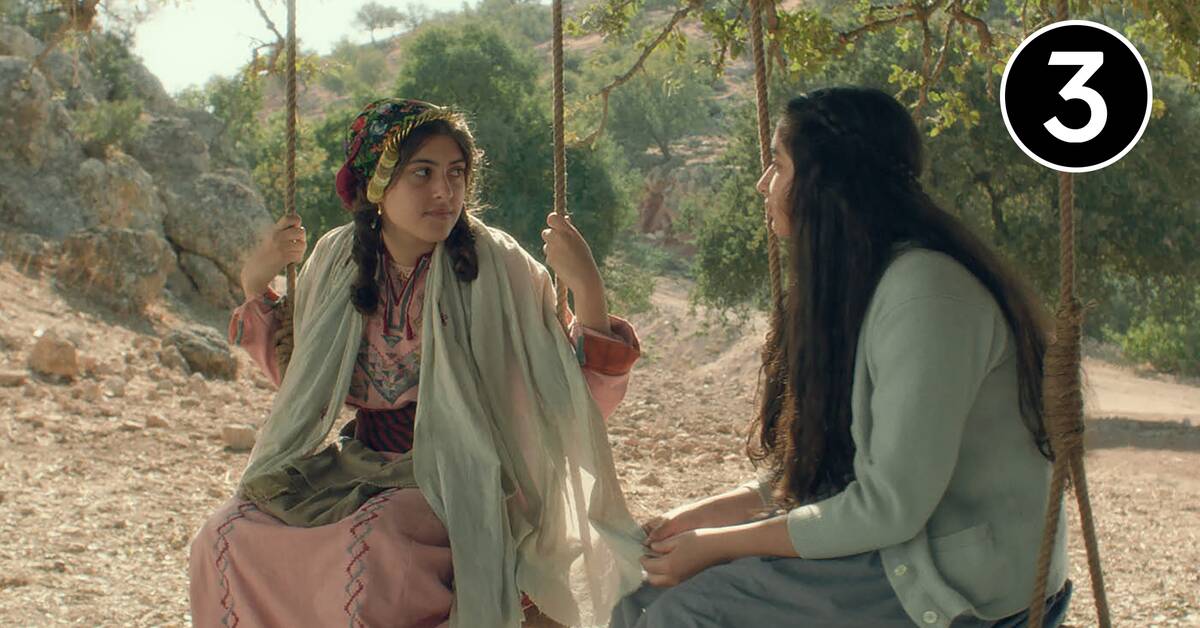Jordanian
director Darin J Sallam's feature-length debut "Fahra" is world politics in a nutshell, or rather in a cramped pantry.
There, the title girl is locked up because her father wanted to protect her from the Israeli army that is attacking the small village in Palestine.
The year is 1948 and the West has just divided Farha's homeland into a Jewish and an Arab part - a move that has had known, bloody consequences ever since.
To say the least.
The film, which is based on a true story, begins in a sunny major.
Admittedly, the father has just said that Fahra cannot go to the capital to study, because it is time for her to be married off, she is, after all, 14 years old, but both she and we sense that the relatively gentle father may change his mind.
And sure enough, he prepares the application form - and a second later the grenades start to rain.
Dad drags
his daughter into said food cellar, nails the door shut and leaves.
Promise to come back.
He does not do that.
However, an Israeli patrol soon does with a devilish officer who has an entire family executed and tells one of the soldiers to stomp a baby to death.
Fahra becomes an Arab Anne Frank, in a food cellar instead of an attic, and where the threat comes from Jewish soldiers instead of Nazis.
Only in a way, this is political explosives.
But it is also a coming-of-age story where the development from child to adult takes place in a few days.
Through the cracks in the door and wall, she is forced to see brutal assaults and murders from the first floor, few scarring experiences etched in her memory.
All violence takes place outside the image, which in and of itself is commendable, it makes the film a clean room for the teacher who wants to incorporate the film into their teaching, but it also affects the experience.
It doesn't feel like it's a conscious decision that the attack on the village only exists on the soundtrack and in some plumes of smoke further in the picture, but that it's rather the consequence of a thin budget.
Well, those are
possibly crushing objections.
On the whole, "Fahra" is nevertheless an engaging drama that, at the same time as it tells of a young, broken life, recalls the starting point of the eternal conflict that is still ongoing.
Director/screenwriter Darin J Sallam is one of many young women to break into the Arab film scene.
In her home country of Jordan (according to Sallam herself), the majority of producers are women (but directing is still primarily a male job), which is uplifting and guarantees a positive cinematic development that is not a given in the otherwise heavily patriarchally governed region.
And festival-acclaimed Darin J Sallam is said to be back on the screen soon, and then likely with a fatter budget that can do her visions greater justice.

